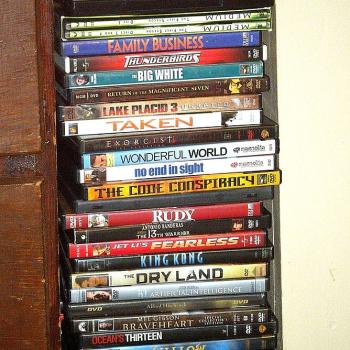Last post about questions I got on tour.
Several people, often those involved in campus ministry in one way or another, asked me how they could reach out to gay communities on campus. Some of them had tried to reach out in the past, or even been invited to come and share their views, but had been turned away pretty harshly when it became clear that they were not going to reject or handwave the Church’s teachings on sexuality. But they still really wanted to find ways to work with LGBT groups as allies on issues where they agreed, like ending bullying and what I believe the Catechism calls “unjust discrimination.” This was partly because they agreed, and the issues are important, and partly because they hoped it would help open people’s hearts and minds to the Gospel.
On one level you can only say, “Be genuine, keep trying, and make sure it’s obvious that you have a real commitment to these issues and aren’t just using them to lure people in so you can make a sales pitch.” That won’t always be enough, because misunderstanding is really easy and college students can be unusually self-righteous (ask me how I know!), but sometimes you just gotta try.
But I think a huge issue here is that Catholics in leadership–priests, campus chaplains, people in youth ministry–often haven’t done the work of building up their credibility. Attempts to be an ally will look like attempts to make a sales pitch, or gain a kind of cheap “we’re tolerant! no really!” credit, or even subvert real anti-bullying efforts, if Catholics haven’t laid the groundwork. Maybe that isn’t fair, but hey: Life isn’t fair.
People will be much more ready to work with you and trust you–and, I hope, much less willing to try to score political points by claiming that Church teaching is inherently bullying and bigoted–if they’ve seen you work to make the places where you have influence a safe haven for gay and questioning students. If they’ve heard you speak passionately about bullying in Catholic schools (and I’ve heard some stories that would curl your hair), if they know you speak up when you hear people using anti-gay slurs, that makes a huge difference. If you’re a priest you can talk about bullying and/or homophobia in your homily. No matter who you are, you can ask students what the atmosphere is like on campus, or in their high schools and hometowns, for people who are gay or perceived to be gay. Taking these steps, and reminding people that you’re taking them because you’re a follower of Christ rather than in spite of it, would be a huge step forward on most campuses. (Do I need to say that all of this stuff goes triple for Catholic teachers, priests, and other leaders in high schools?)
Here’s a post about what one same-sex attracted Christian looked for when he was trying to figure out which people were safe to come out to. He’s generalizing from personal experience, but his post offers a starting point and a framework. And I don’t know what would happen if Catholic chaplaincies used that cute little rainbow “safe space” sticker–it might come across as disingenuous–but it might be one way of opening the conversation and making it clear that you are really committed to helping gay people feel loved, accepted, safe, and worthy of self-respect.
If my readers have seen this kind of thing on their campuses, or any other kinds of alliance or fruitful interaction between Catholic/Christian leaders and the LGBT communities on campus, why not shoot me an email and tell me about it? Gay/same-sex attracted/questioning undergrads or grads, what did you look for? What do you wish people had tried? You can click that little flying envelope to your right, or c&p [email protected].











